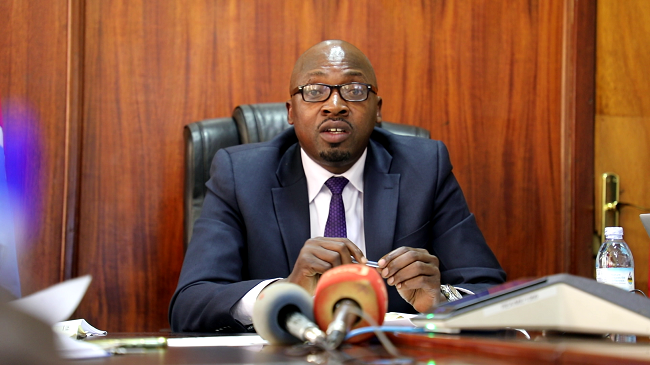ENTEBBE – New scientific research has established that the usage of solar lights by the fishing communities on Lake Victoria and Lake Albert in fishing is safe and environmentally friendly.
Fishing lights are majorly applied in fishing small pelagic fish species such as mukene [silverfish] and others.
The usage of solar lights had been banned on the lakes, and fishermen only encouraged to use kerosene lanterns on the argument that the solar lights are so strong that the fishermen end up catching the unintended fish.
Following the ban, the National Fisheries Resources Research Institute [NFRI] conducted research on the use of solar lumps in fishing and established that actually solar light is a better and safer approach to the activity.
Speaking to the media during the discussion about the research results recently, the commissioner for renewable energy in the Energy ministry, Dr. Brian Isabirye stressed that the use of electric solar lights is environmentally friendly presenting no possibility of leakages into the lakes, while the fishermen are equally safe from any fire out breaks at the lake.
“These lights will improve efficiency of the fishermen, reduce pollution of the lakes and makes it safer for the fishermen in case of any fires during fishing. It is such technologies that government looks to promote,” Isabirye said.
He added that the use of kerosene presents several challenges, including those that put the lives of the fishermen at great risk. He said use of kerosene in fishing has contributed to the pollution in lakes Victoria and Albert.
Mukene [Rastrineobola argentea] is mainly got from Lake Victoria while Musiri [Engraulicypris bredoi] and Ragoogi [Brycinus nurse] are mainly got from Lake Albert in Uganda.
These fish species are a delicacy in almost all communities in the country and are widely known for their high nutrition content.
Isabirye said government will not rash to ban the usage of kerosene lanterns, but would rather promote the use of electric solar lights, increase access and facilitate loans to enable fishermen access them and be competitive in the trade.
“We shall not ban the use of kerosene lanterns, but rather encourage the fishermen access the solar lights. We shall work with the traders and the entire private sector to avail the lights to the fishing community at a subsidized price,” Isabirye noted.
The other recommendations in the research policy brief included regulating the net panels to only 16 metres and 20 metres on lakes Albert and Victoria respectively to control the rising by-catch of aquatic life.
To prevent overfishing, the brief recommends restriction of fishing nets to 10 millimetres and 8mm on Lakes Victoria and Albert respectively, while this would also enable fish stock protection.
The executive director Uganda National Renewable Energy and Energy Efficiency Alliance [UNREEEA], Bernard Mbaine said use of solar lamps is safe, secure, and cost-effective option.
“We had sensitised the fishermen on the use of this clean energy technology, but many complaints came up alleging that the lights encourage a lot of by-catch, although there was no evidence to that,” Mbaine said.
The fisheries sector in Uganda contributes at least 12 percent to the agricultural GDP with high dependence on the wild stock.
Apparently, the small pelagic fish species contribute at least 70 percent to the total annual fish catch yields on Lakes Victoria, Kyoga, and Albert offering livelihood to over 60 percent of the lakeside fishing communities, according to the NFRRI.
The major challenge of fishing in Uganda rotates around conflicting harvesting techniques, especially between fishermen targeting small species and those dealing in larger species.
https://thecooperator.news/fpu-burns-shs-600mln-illegal-fishing-gear-on-l-kyoga/
Buy your copy of thecooperator magazine from one of our country-wide vending points or an e-copy on emag.thecooperator.news
